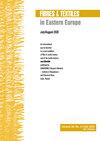Digital Inheritance of Traditional Mongolian Robes of the Nayman Tribe
IF 0.9
4区 工程技术
Q3 MATERIALS SCIENCE, TEXTILES
引用次数: 0
Abstract
Abstract The Mongolian robe is the crystallisation of the wisdom of Mongolian people after a long period of social practice and one of the intangible cultural heritages of humanity. With the gradual disappearance of the nomadic lifestyle in the steppe, it is not easy to protect and pass on traditional Mongolian dress culture and traditional handicraft technology. This study used the digital twin concept to construct a digital twin to try on clothes for a model in a virtual environment, to realise a mirror image presentation of the target physical entity, and to use effective modern technology to protect and pass on the traditional clothing. The experiment used an AlphaM4 3D body scanner to obtain a 3D human body model, as well as reverse engineering technology to process the initial data, such as noise reduction, streamlining, hole patching and smoothing to build a personalised human body model. The traditional black cotton robe of the Nayman tribe researched in the field was mapped by the planar structure design method, and its structure and 2D samples were recovered. A 3D model of the traditional cotton robe of the Nayman tribe was established based on 3D simulation technology to achieve a 3D virtual display effect, enable better dissemination and inheritance, and give a new vitality to non-heritage clothing in the digital era. The research results can provide fresh ideas and technical support for the digital estate and development of other traditional costumes, as well as contribute to the construction of digital resources for intangible cultural heritage.奈曼部落传统蒙古袍的数字化传承
蒙古族长袍是蒙古族人民长期社会实践智慧的结晶,是人类非物质文化遗产之一。随着草原游牧生活方式的逐渐消失,蒙古族传统服饰文化和传统手工艺技术的保护和传承变得不容易。本研究运用数字孪生概念,构建数字孪生模型,在虚拟环境中为模特试衣,实现目标实体的镜像呈现,利用有效的现代技术对传统服装进行保护和传承。实验采用alphaham4三维人体扫描仪获取三维人体模型,并采用逆向工程技术对初始数据进行降噪、流线、补孔、平滑等处理,构建个性化人体模型。采用平面结构设计方法对野外研究的内曼族传统黑棉袍进行了测绘,并恢复了其结构和二维样品。基于三维仿真技术,建立内曼族传统棉袍的三维模型,实现三维虚拟展示效果,更好地传播和传承,为非传承服饰在数字时代赋予新的活力。研究成果可以为其他传统服饰的数字化遗产和开发提供新的思路和技术支持,也可以为非物质文化遗产数字化资源的建设做出贡献。
本文章由计算机程序翻译,如有差异,请以英文原文为准。
求助全文
约1分钟内获得全文
求助全文
来源期刊

Fibres & Textiles in Eastern Europe
工程技术-材料科学:纺织
CiteScore
1.60
自引率
11.10%
发文量
12
审稿时长
13.5 months
期刊介绍:
FIBRES & TEXTILES in Eastern Europe is a peer reviewed bimonthly scientific journal devoted to current problems of fibre, textile and fibrous products’ science as well as general economic problems of textile industry worldwide. The content of the journal is available online as free open access.
FIBRES & TEXTILES in Eastern Europe constitutes a forum for the exchange of information and the establishment of mutual contact for cooperation between scientific centres, as well as between science and industry.
 求助内容:
求助内容: 应助结果提醒方式:
应助结果提醒方式:


